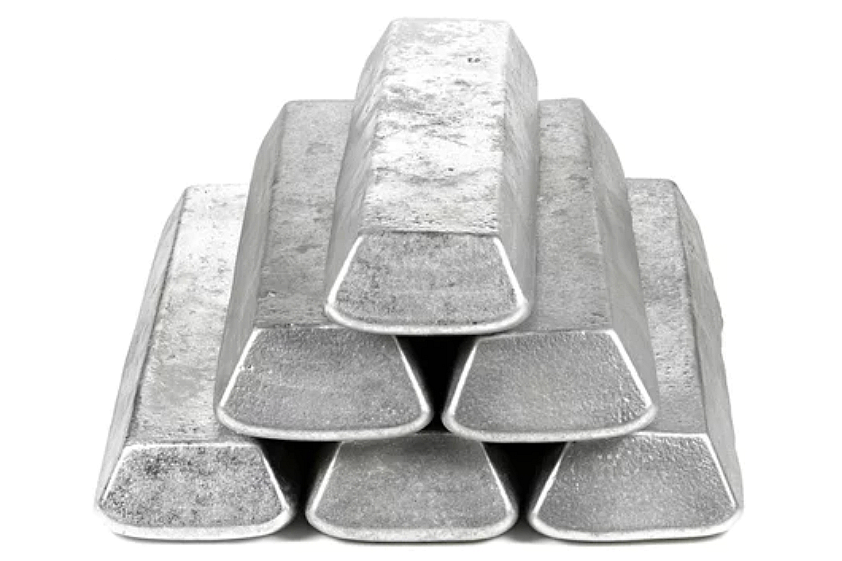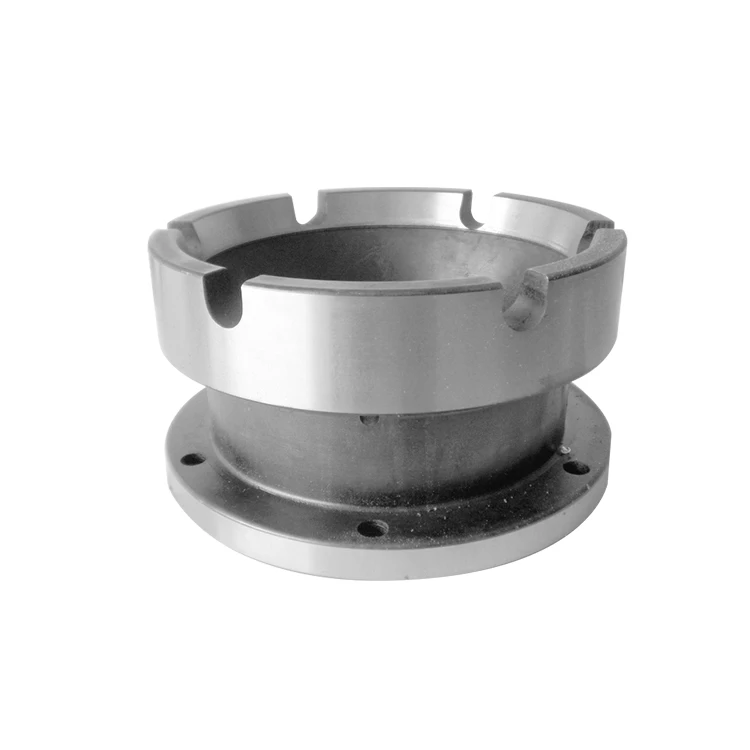Just How Light Weight Aluminum Foundries Add To Different Industries: A Detailed Introduction
Aluminum shops function as vital suppliers across several fields, consisting of auto, aerospace, building, and electronics. They produce parts that are not only lightweight but also resilient, enhancing the performance of different products. With innovative spreading techniques and a dedication to sustainability, these shops are adapting to satisfy progressing industry needs. As they introduce, the effect of aluminum spreadings on different applications raises essential questions about the future of manufacturing. What lies in advance for this important sector?
The Function of Light Weight Aluminum Foundries in the Automotive Industry
As the vehicle sector progressively embraces light-weight materials to improve gas efficiency and efficiency, aluminum shops play a crucial function in this development. These facilities specialize in the production of light weight aluminum spreadings, which are vital components in modern-day cars. By offering high-strength, light-weight parts, light weight aluminum shops make it possible for makers to reduce the total weight of lorries, eventually resulting in boosted fuel economy and decreased discharges.
Aluminum's resistance to corrosion further improves lorry durability, making it an eye-catching choice for car manufacturers. Foundries make use of sophisticated methods such as die spreading and sand casting to create intricate and precise components, ensuring that they fulfill rigorous sector criteria. In addition, the ability to reuse aluminum efficiently adds to an extra lasting production process. As the automotive industry proceeds to innovate, light weight aluminum factories will certainly continue to be pivotal in providing the products required for the following generation of lorries, supporting both performance and environmental goals.

Aerospace Applications of Aluminum Castings
Light weight aluminum castings are essential to the aerospace market, providing a mix of light-weight strength and durability that is vital for airplane efficiency. These castings are used in various components, such as engine parts, architectural structures, and touchdown equipment, where weight decrease is critical for gas performance and general safety and security. The convenience of light weight aluminum enables complex geometries that boost wind resistant effectiveness while maintaining architectural honesty.
Furthermore, innovations in casting innovations have actually improved the accuracy and surface finish of light weight aluminum components, reducing the demand for comprehensive post-processing. This efficiency not just increases manufacturing timelines yet also reduces costs, making aluminum an attractive choice for producers. The deterioration resistance of light weight aluminum assurances durability and reliability in extreme operating atmospheres, further establishing its role in aerospace applications. As the market progresses, aluminum castings remain to be a vital material, driving technology and supporting the growth of next-generation airplane.
Building And Construction Market Developments Via Light Weight Aluminum
The building and construction market has significantly taken on light weight aluminum as a result of its lightweight residential or commercial properties and flexibility, paralleling its successful applications in aerospace. Developments in aluminum design have resulted in stronger, more effective structures, enabling contractors and architects to check out new opportunities. The product's resistance to corrosion and low upkeep requires make it particularly appealing for both commercial and household tasks.
Aluminum's flexibility helps with the development of intricate designs, permitting visual improvements that were previously difficult with standard products. Prefabrication methods have actually also advanced, making use of aluminum to minimize construction time and costs substantially. In addition, the power performance of light weight aluminum systems-- such as window structures and roof covering-- contributes to lasting structure practices, straightening with modern ecological criteria. As the building and construction sector proceeds to accept these developments, aluminum's function is expected to increase, driving further innovation and contributing to the advancement of resilient frameworks.
Electronic devices and the Need for Lightweight Light Weight Aluminum Parts
With the rapid advancement of innovation, the demand for lightweight light weight aluminum parts in the electronic devices field has actually risen. As tools become a lot more portable and portable, suppliers seek products that use both longevity and weight reduction. Light weight aluminum, with its outstanding strength-to-weight ratio, has actually emerged as a recommended choice for elements such as coverings, warmth sinks, and structural assistances.
Making use of aluminum not just enhances item efficiency yet likewise adds to energy efficiency, as lighter tools need much less power during operation. Additionally, aluminum's outstanding conductivity makes it optimal for digital applications, making sure effective heat dissipation he has a good point and reducing the danger of overheating.
As consumer preferences change in the direction of smooth and lightweight gizmos, light weight aluminum foundries play a necessary function in meeting the developing demands of the electronic devices industry (Aluminum Casting Company). Their capability to produce exact and top notch light weight aluminum parts sustains development, making it possible for manufacturers to press the boundaries of layout and performance
Lasting Practices in Aluminum Foundries
As the electronic devices sector increasingly prioritizes sustainability, aluminum factories are adjusting their techniques to align with these ecological goals. Lots of shops are executing recycling programs that redeem light weight aluminum scrap, substantially reducing the need for resources and decreasing waste. By utilizing energy-efficient innovations, these facilities are decreasing their carbon footprint; for circumstances, using electric heating systems rather of standard gas-fired ones can lead to substantial energy cost savings.
Additionally, light weight aluminum shops are purchasing water preservation actions, such as closed-loop systems that recycle water used in cooling procedures. These techniques not just lower water intake but likewise minimize the environmental effect connected with wastewater discharge. Additionally, numerous foundries are discovering renewable click here for info resource sources, such as solar and wind power, to meet their energy requires sustainably. Via these campaigns, aluminum foundries exhibit a commitment to ecological stewardship while remaining to fulfill the demands of the electronics industry.
Future Trends in Light Weight Aluminum Factory Technologies
Arising technologies are poised to transform aluminum shops, improving efficiency and item high quality while advancing sustainability efforts. Innovations such as synthetic intelligence and maker knowing are expected to optimize manufacturing processes by anticipating devices failures and improving resource allotment. The combination of advanced robotics will certainly simplify operations, lowering labor expenses and lessening human error.
Additive production, or 3D printing, is additionally getting traction, allowing the manufacturing of complex geometries that were formerly unattainable with conventional methods. This shift can bring about substantial material cost savings and reduced waste. Additionally, wise shops utilizing IoT (Web of Points) technologies will certainly make it possible for real-time tracking and data analysis, cultivating proactive decision-making.
The fostering of cleaner melting innovations and reusing techniques will further reduce the environmental footprint of aluminum shops, making them more sustainable. Collectively, these patterns indicate a future where aluminum factories can operate with greater performance and duty.
Regularly Asked Concerns
What Are the Environmental Impacts of Light Weight Aluminum Foundries?

Exactly How Do Foundries Make Sure Top Quality Control in Aluminum Casting?
Foundries ensure top quality control in light weight aluminum casting by executing rigorous examination procedures, utilizing innovative modern technology, conducting routine material screening, and sticking to industry standards, thus maintaining uniformity and integrity in their ended up items. Precision aluminum casting.
What Is the Typical Lifespan of Light Weight Aluminum Cast Components?
The typical life-span of light weight aluminum cast parts typically varies from 10 to half a century, depending upon elements such as environmental problems, usage, and upkeep. Proper care can significantly improve their sturdiness and efficiency in time.
Exactly How Are Aluminum Alloys Selected for Details Applications?
Aluminum alloys are selected based aluminum casting on variables such as stamina, deterioration resistance, weight, and thermal conductivity. Designers review the details requirements of applications to establish one of the most ideal alloy for finest efficiency and longevity.
What Are the Safety Laws for Aluminum Factory Employees?
Security guidelines for light weight aluminum shop employees consist of individual protective devices requireds, ventilation requirements, direct exposure limits to harmful materials, and procedures for dealing with liquified metal. Compliance guarantees worker safety and security and minimizes health and wellness risks connected with factory operations.
As the auto industry significantly welcomes light-weight materials to boost gas performance and efficiency, light weight aluminum shops play a vital function in this evolution. As consumer preferences change in the direction of streamlined and light-weight gizmos, aluminum factories play a necessary duty in meeting the developing demands of the electronic devices industry. As the electronics sector increasingly prioritizes sustainability, light weight aluminum foundries are adjusting their techniques to line up with these ecological objectives. Numerous factories are executing reusing programs that reclaim light weight aluminum scrap, considerably decreasing the need for raw materials and lessening waste. Security laws for aluminum foundry employees include personal protective equipment mandates, air flow requirements, direct exposure limitations to unsafe products, and procedures for taking care of molten metal.